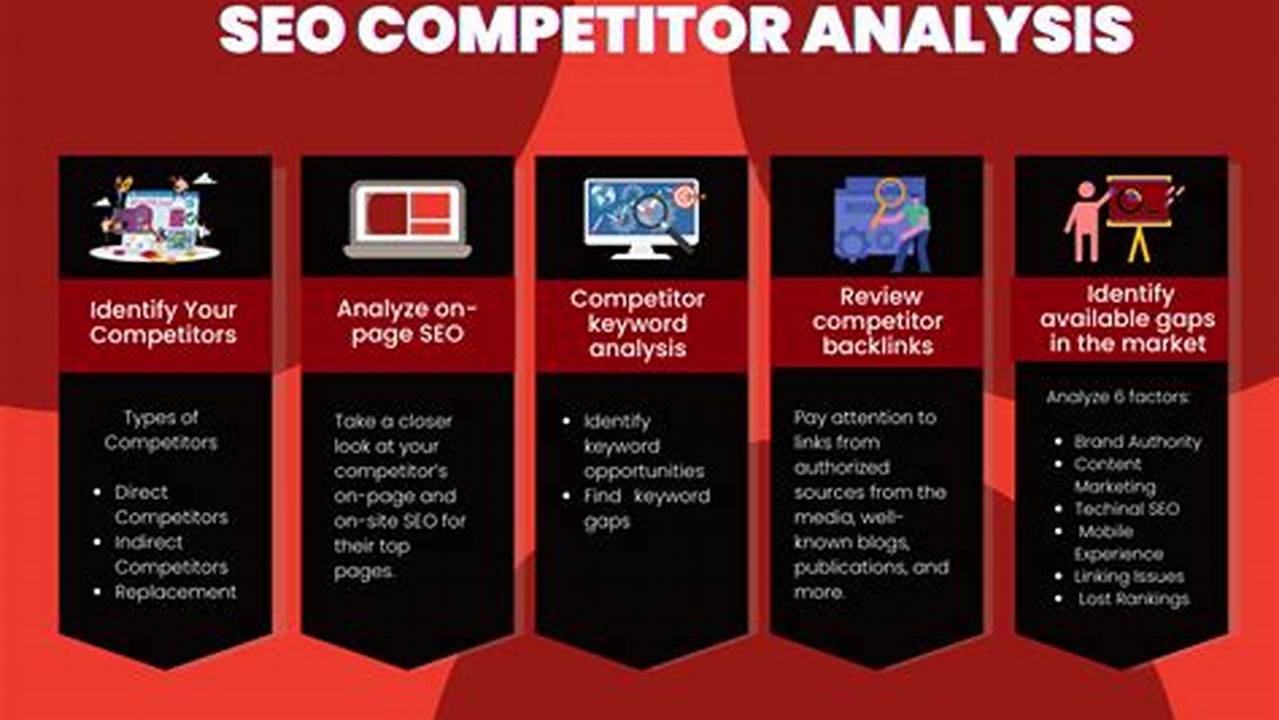Understanding the competitive landscape is crucial for successful search engine optimization (SEO). Gaining insights into competitors’ strategies, strengths, and weaknesses allows for informed decision-making and the development of more effective SEO campaigns. This knowledge empowers businesses to identify opportunities, optimize content, and ultimately outperform rivals in search engine rankings.
Competitive Analysis Provides a Benchmark
Evaluating competitor performance provides a measurable standard against which to assess your own SEO efforts. This benchmark helps in setting realistic goals and tracking progress.
Keyword Gap Analysis
Identifying keywords competitors rank for but you don’t presents opportunities to expand your keyword targeting and capture more relevant traffic.
Content Strategy Insights
Analyzing competitor content reveals successful content formats, topics, and strategies that can inspire and inform your own content creation.
Backlink Profile Examination
Examining competitor backlink profiles highlights potential link-building opportunities and helps identify high-quality websites to target for outreach.
Technical SEO Audit Comparison
Comparing technical SEO aspects like site speed and mobile-friendliness against competitors helps identify areas for technical improvement.
Paid Advertising Strategy Analysis
Understanding competitor paid advertising strategies can inform your own paid campaigns and help optimize budget allocation.
Social Media Engagement Analysis
Analyzing competitor social media activity reveals successful social media tactics and helps identify potential influencers or partnerships.
Local SEO Competitor Research
For local businesses, understanding local competitor strategies is essential for optimizing local search visibility and attracting nearby customers.
Market Share Evaluation
Competitive analysis provides insights into market share distribution and helps identify potential areas for growth and expansion.
Trend Identification
Monitoring competitor activity helps identify emerging trends and adapt SEO strategies accordingly, staying ahead of the curve.
Tips for Effective Competitor Analysis
Focus on relevant competitors: Prioritize analyzing competitors who target the same audience and offer similar products or services.
Utilize multiple data sources: Combine data from various tools and sources to gain a comprehensive understanding of the competitive landscape.
Regularly monitor competitor activity: SEO is dynamic; consistent monitoring ensures you stay informed of competitor changes and adapt your strategy.
Document findings and track progress: Maintain organized records of competitor analysis data to track changes and measure the impact of your SEO efforts.
Frequently Asked Questions
How often should I conduct competitor analysis?
The frequency of competitor analysis depends on the industry and the rate of change within the market. Generally, conducting analysis quarterly or bi-annually is recommended.
What are some free tools for competitor analysis?
Several free tools offer basic competitor analysis features, including Google Search Console, Google Alerts, and some social media analytics platforms.
How can I identify my main SEO competitors?
Start by identifying businesses that rank for the same keywords you target. Also, consider businesses offering similar products or services to your target audience.
How can competitor analysis improve my SEO strategy?
Competitor analysis informs keyword targeting, content creation, link building, technical SEO optimization, and overall SEO strategy development.
What metrics should I focus on during competitor analysis?
Key metrics include keyword rankings, organic traffic, backlink profile strength, domain authority, content quality, and social media engagement.
Is competitor analysis ethical?
Ethical competitor analysis focuses on publicly available information and respects intellectual property rights. Avoid any practices that violate terms of service or engage in unethical data collection.
By understanding the competitive landscape and leveraging insights gained through competitor analysis, businesses can develop data-driven SEO strategies, improve search engine rankings, and achieve sustainable online growth.

Leave a Reply